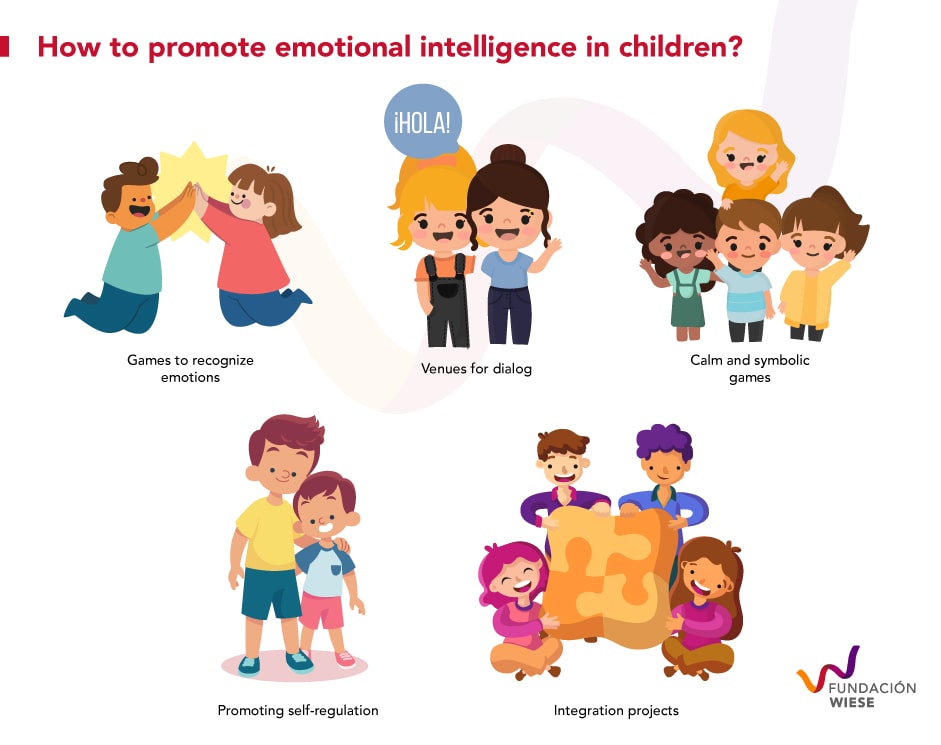Promoting activities for developing emotional intelligence in children is a crucial task in their education. This is due to the fact that this skill will provide them with the necessary tools to understand and to express and manage their emotions, which, in turn, will influence their emotional, social and academic well-being.
In this article, we want to share with you more information about the importance of developing emotional intelligence, as well as some activities that you can do in the classroom to promote it. That way, you will be able to help your pupils to develop their emotional intelligence effectively.
The Importance of Promoting Emotional Intelligence in Children
Emotional intelligence is an elementary competency in children’s lives. It allows them to understand and manage their emotions, as well as to establish healthy interpersonal relationships. When children develop this skill, they can confront their school and social challenges more successfully. Therefore, it is essential to foster emotional intelligence from an early age so that they may grow up emotionally healthy and with confidence in themselves.
How to promote emotional intelligence in children?
In order to help you promote the development of emotional intelligence in your pupils, we show you here some activities that you might do with them in the classroom:
Games for Recognizing Emotions:
Through interactive games, children can learn to identify and name their emotions, as well as those of others. This strengthens their ability to empathize and understand the point of view of their peers and other members of their environment.
Venues for dialogue:
Establishing venues for conversation where children can express their feelings and concerns is essential. This allows them to feel heard and understood, promoting the effective communication of their emotions.
Calm and symbolic games:
Symbolic games, such as role-playing, is ideal for children to practice empathy and understanding the emotions of others. By taking on different roles, children can experience how other people feel in various situations.
Promoting self-regulation:
Helping children to manage their emotions is critical. Relaxation activities, such as meditation or deep breathing, can teach them how to manage stress and anxiety effectively.
Integration projects:
Integrating emotional intelligence into school projects can be very effective. Children can work together on projects that involve emotion management, such as conflict resolution, allowing them to apply their skills in real-world situations.

Promoting emotional intelligence in children is necessary for their personal and academic development. The aforementioned activities can help you promote these skills in younger children. Keep in mind that emotional education not only benefits children in their present, but also provides them with valuable tools to face future challenges. We want to accompany you on this path, and we invite you to explore the Wiese Foundation’s Educational Quality program, where you will find valuable resources for the development of emotional intelligence in children.










